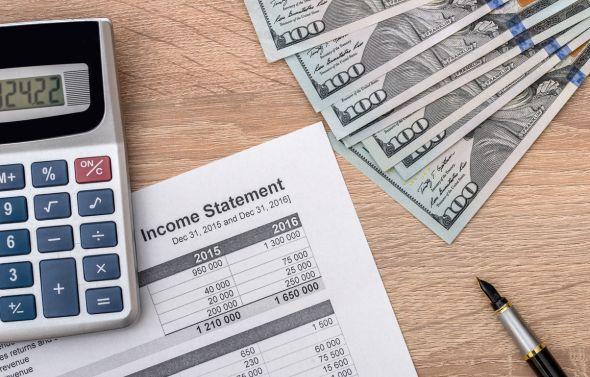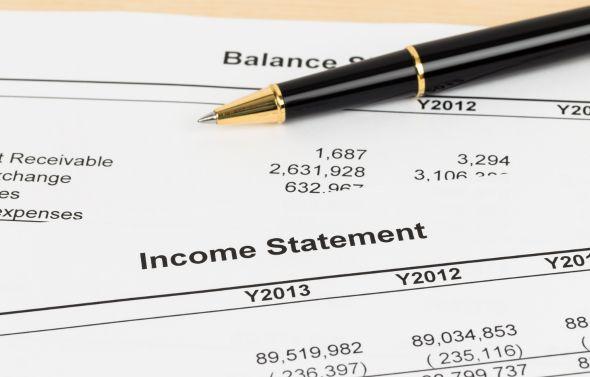Owner-Ready Financial Statements: A Complete Guide

Key Takeaways
Owner statements turn complex financial information into simple, transparent summaries that help landlords and investors understand how their short term rentals are performing.
Clear, consistent reporting builds trust, strengthens business relationships and reduces confusion about rent collection, expenses and payouts.
Modern management tools and automation features make it easier to create accurate statements without manual rework or delays.
Including details such as rent received, major transactions and total operating costs ensures that every report provides a complete view of each rental’s finances.
Accuracy and presentation matter, professional, well-organized statements reflect strong responsibility, good ownership practices and long-term planning within the short term rentals industry.
In property management, perception matters, but precision pays. You might impress guests with perfect check-ins, but owners care about what the numbers say. That’s where owner-ready financial statements come in.
These reports translate all your daily property management activity, bookings, expenses, maintenance costs and taxes into clear numbers that show how the rental property is performing. They help property owners see the value of your work and give you, as the property manager, a structured way to track income, expenses and profit over time.
For any property management company, creating consistent and accurate owner statements isn’t just about bookkeeping. It’s about transparency, trust and professionalism. When you can show exactly how much revenue a property has generated, where the money went and what the owner can expect as a payout, you instantly elevate your service.
And here’s the good part: with modern property management software like Hostaway, preparing these reports doesn’t need to be time-consuming. You can automatically generate financial statements that are clear, detailed and ready to share every single month.
In this guide, we’ll break down what makes a financial statement “owner-ready,” look at real-world examples and walk through how to create statements that reflect the true performance of your short-term rental properties.
What Is an Owner Statement?
An owner statement (or owner-ready financial statement) is a report that summarizes how a rental property performed financially over a specific period usually a month. It shows the total income, expenses and owner payouts in a format that’s easy to understand.
Think of it as a bridge between accounting and communication. While internal accounting reports are built for bookkeepers and tax prep, owner statements are designed for property owners who simply want to know: “How much did my property earn and what were the costs?”
For a property manager or property management company, these statements serve two purposes. First, they provide accurate financial data you can rely on to make business decisions. Second, they help build transparency and trust with clients, showing exactly how their investment is performing.
A good owner statement is simple, visual and structured. It includes essential categories like rental income, property maintenance and taxes, without drowning owners in accounting jargon. Depending on the type of property, whether it’s a single-family home, a small residential unit or a commercial building, the layout and level of detail may vary.
Ultimately, an owner statement is more than a financial document. It’s a communication tool that reflects your professionalism and your commitment to giving owners clear insights into their short-term rentals’ performance.

What Should an Owner-Ready Financial Statement Include?
The best owner statements are clear, consistent and complete. Whether you’re managing a single-family home or a growing portfolio of short term rental properties, your goal is to give each property owner an easy snapshot of their rental property’s performance, what came in, what went out and what’s left as profit.
Here’s what every owner-ready financial statement should include:
1. Income summary
List all sources of rental income like nightly bookings, cleaning fees collected from guests, parking fees or any add-on services. This gives owners a full view of their property’s total revenue for the month.
2. Operating expenses
Break down all expenses tied to the property’s day-to-day operations. This usually covers property maintenance, cleaning, utilities and software or listing platform fees.
3. Property management fees
Many property management companies charge a percentage of gross income or a flat monthly rate for their services. Displaying this line item separately reinforces transparency and helps owners understand what they’re paying for professional management, guest communication, maintenance coordination and financial reporting.
4. Net income (or profit)
After subtracting total expenses from total income, you get the property’s net income, the figure that shows how profitable their investment is.
5. Owner payout summary
Show how much will be transferred to the owner’s account after all deductions. Include the payout date and mention any pending payments from booking platforms.
6. Notes and adjustments
Add short notes if anything looks unusual, a repair refund, delayed booking payment or tax adjustment. These small details help owners understand the full financial picture without confusion.
Sample Monthly Owner-Ready Financial Statement
Category | Description | Amount (USD) |
Income | Rental revenue from short term rentals | $8,200 |
Cleaning fees collected | Guest-paid cleaning charges | $500 |
Total income |
| $8,700 |
Expenses | ||
Cleaning & property maintenance | Contractor fees and supplies | $600 |
OTA commission fees | Airbnb and Booking.com fees | $250 |
Utilities | Electricity, water, internet | $180 |
Property management fee | 25% of monthly income | $2,175 |
Total expenses |
| $3,205 |
Net income |
| $5,495 |
Owner payout | Sent to owner’s account | $5,495 |
Note: Figures are for example purposes and vary depending on property type, location and the previous month’s activity.
Examples of Owner-Ready Financial Statements
Every property management company handles reporting a little differently, but the goal is always the same, to give property owners a clear, accurate snapshot of their rental property’s performance. A well-prepared owner statement highlights rental income, expenses and owner payouts in a way that’s easy to follow and consistent month after month.
Let’s look at how different types of owner statements can be structured, depending on the kind of property management services you offer and the level of detail your owners expect.
1. Monthly owner statement
This is the most common format used by a property manager or management company. It’s generated every month and summarizes how each rental performed financially during that period.
It typically includes:
Total rental income earned
All expenses paid (such as cleaning, utilities and maintenance costs)
The management fee charged
Any taxes or regulatory deductions
The owner payout amount
Monthly reports are ideal for short term rentals, since they help owners track profitability across short periods and compare performance to the previous month.
2. Annual financial summary
An annual report consolidates all owner statements from the year to show the overall profitability and return on investment for each property. These summaries are useful for property owners reviewing their portfolio or preparing for tax season.
Annual reports often include year-end revenue totals, net income and a breakdown of taxes paid or pending. For a property management company, these reports reflect professionalism and accurate recordkeeping, both essential when building long-term partnerships with owners.
3. Multi-property comparison report
Many property managers handle more than one rental property. A multi-property comparison brings all financial data together to highlight performance across the portfolio. It can show trends such as which rentals are generating the most income, which have higher expenses and how maintenance or management fees affect overall profitability.
For busy owners with multiple investments, these reports make it easy to determine where to allocate their budget and how to improve returns.
4. Automated owner statements generated by property management software
Modern property management software can automatically generate consistent owner statements that look professional and are easy to share. Tools like Hostaway allow property managers to track income, expenses and payments for each property in real time, producing detailed, accurate reports without manual work.
Automation reduces the risk of human error, saves hours of accounting and ensures every owner receives their statement on time. It’s a simple way for a management company to deliver value, transparency and peace of mind, all at once.
Pro tip: Consistency is key. Whether your statements cover a single rental or a large portfolio, keep the format uniform across every owner. Clear, accurate reporting not only shows professionalism but also strengthens ownership trust, a cornerstone of successful short term rental management.
Creating Owner Statements with Hostaway
With Hostaway, you can schedule monthly auto-statements that use saved filters and totals to generate accurate, professional reports automatically. Choose Draft for internal review or Published to make them instantly visible to property owners ensuring consistency every month.
Hostaway also supports manual, duplicate and template-based reports for flexibility. Matching expenses and extras are pulled in automatically, recurring costs like utilities can be automated and internal accounting lines can be hidden from owner views when needed.
Each statement can be viewed per listing or per reservation, showing gross income, management fees and other deductions clearly. Reports can be downloaded as PDFs or Excel files or accessed through Hostaway’s API for white-labeled dashboards.
In short, Hostaway combines accuracy, control and scalability helping every property management company deliver consistent, owner-ready statements without extra manual work.

Why Owner-Ready Financial Statements Matter for Property Managers
For a property manager, preparing owner statements isn’t just about keeping books balanced, it’s about building trust. Property owners rely on you to provide accurate data about their rental property’s performance and how clearly you present that information directly impacts your relationship with them.
1. They build transparency and confidence
When property owners can see where every dollar of rental income goes, from management fees to cleaning and taxes, they feel confident that their investment is being handled responsibly. Transparent, easy-to-read financial statements also reduce questions, confusion and follow-up emails.
2. They strengthen long-term partnerships
Consistent, well-formatted owner statements signal reliability. Whether you’re an independent property manager or part of a property management company, clear communication around expenses, payments and profits shows professionalism. Over time, this helps you retain owners and grow your portfolio through referrals and word-of-mouth trust.
3. They support strategic decisions
An accurate statement isn’t just for recordkeeping, it’s a management tool. By reviewing month-over-month trends, owners and managers can identify opportunities to adjust pricing, plan maintenance or scale short term rental management operations. It’s the kind of insight that turns a rental from passive income into a well-run business.
4. They simplify tax and compliance work
At tax time, properly organized owner statements save everyone headaches. With Hostaway or similar property management software, you already have a clear record of income, expenses and taxes per property, meaning less stress for owners, accountants and management teams.
5. They reflect your professional standards
In an industry built on trust, accuracy is everything. A professional management company that consistently delivers precise, well-designed statements demonstrates control, expertise and commitment, traits every property owner values in their long-term partner.
How to Create Owner-Ready Financial Statements (Step-by-Step)
Creating accurate, easy-to-read owner statements is one of the most valuable habits any property manager can build. Done right, it shows property owners exactly how their rental property is performing, down to the last dollar earned and spent.
Here’s how to put one together from start to finish.
1. Gather your data
Start by collecting accurate data from your booking channels, accounting software and bank records. You’ll need complete information on rental income, taxes, expenses and payments for the reporting period. Make sure any management fees or maintenance costs are clearly categorized.
2. Choose a reporting period
Most property management companies prepare owner statements monthly, summarizing the previous month’s activity. For longer-term insights, you can also prepare quarterly or annual reports. The key is consistency, owners should always know when to expect their statements.
3. Organize income and expenses
Lay out all sources of revenue (nightly rent, add-on services, parking, etc.) and all expenses (cleaning, utilities, maintenance and commissions). Group them by category so owners can quickly see where their money goes and how each property’s profitability compares month to month.
4. Calculate net income and owner payout
Subtract total expenses from total income to determine net income, the property’s profit for that period. Then show the owner payout clearly, along with any pending payments or upcoming deductions. Transparency is what turns a simple report into a valuable management tool.
5. Review and format for clarity
Before sending anything out, review your numbers and make sure everything adds up. Use clean formatting and straightforward language. Avoid cluttered spreadsheets and focus on what matters: income, expenses and the final payout. Add short notes for any unusual transactions or one-time costs.
6. Deliver consistently
Decide how you’ll distribute your owner statements, email, shared drive or integrated reporting tool. What matters most is that each property owner receives the same format, on the same schedule, with accurate data they can rely on.
Pro tip: Keep a record of every statement you send. This running history helps with audits, taxes and long-term tracking and it makes you look organized and professional when owners request past data.
If you’d like to see how to generate and schedule owner statements directly in Hostaway including automation, templates and visibility settings you can read our full step-by-step guide here.
Common Mistakes Property Managers Should Avoid
Even the most experienced property managers can make small reporting mistakes that confuse property owners or distort a rental property’s performance. The good news is that these are easy to fix once you know what to look out for.
Here are the most common pitfalls:
1. Overloading statements with data
Not every number belongs on an owner statement. Sharing every transaction or accounting detail can overwhelm owners who only want to see income, expenses and their final payout. Keep your reports clean and focus on what directly affects profitability.
2. Forgetting to include management fees or taxes
Leaving out management fees, taxes or recurring expenses gives owners an incomplete picture of their returns. Be transparent, include every deduction and clearly label it. This builds credibility and avoids awkward follow-up questions later.
3. Sending inconsistent or late reports
Consistency builds trust. Sending owner statements at irregular times or in different formats each month makes it harder for owners to track performance accurately. Use a fixed schedule and a standard layout to maintain transparency and professionalism.
4. Ignoring data accuracy
Even one small mistake, a missing booking, duplicated expense or mistyped number, can erode confidence. Always double-check totals and make sure your financial data matches bookings, payments and bank deposits. Reliable property management software can help you track income and expenses without manual errors.
5. Skipping notes and context
When something unusual happens like a one-time repair or partial refund, explain it briefly in the statement. A short note helps property owners understand fluctuations without needing to chase you for clarification.
6. Not backing up reports
Keep a digital record of every statement you send. Archived files make tax time, audits and owner inquiries much easier to handle. Organized records are also a sign of professionalism, something every management company should strive for.
Avoiding these small mistakes can transform your owner statements from routine paperwork into a clear, valuable communication tool. It’s one of those areas in property management where precision and consistency quietly separate professionals from the rest.

Glossary: Financial Terms Every Property Manager Should Know
Understanding financial terminology makes creating and reading owner statements much easier. Here are a few key terms every property manager should know when managing short term rentals or larger rental portfolios.
Accounts payable (AP): Money owed by your management company for example, unpaid bills for cleaning, utilities or contractor services.
Accounts receivable (AR): Money owed to your business, often upcoming payments from property owners or other partners.
Cash flow: The movement of money in and out of your rental business. Positive cash flow means your income exceeds your expenses.
Gross income: The total amount earned from rent, bookings and add-on fees before any deductions.
Net income: Your profit after subtracting all expenses, including management fees, taxes and other operational costs.
Operating expenses: The recurring costs involved in running a rental property utilities, cleaning, maintenance, insurance and software subscriptions.
Owner payout: The amount transferred to the property owner’s account after all expenses and management fees are deducted.
Property management fee: The fee charged by a property management company for handling guest communication, maintenance coordination and financial reporting.
Profit and loss (P&L) statement: A report summarizing total revenue, expenses and profit over a specific period, often the foundation of any owner statement.
Reconciliation: The process of comparing financial data (like bookings, transactions and bank deposits) to ensure all numbers match and are accurate.
ROI (return on investment): A measure of profitability that shows how much an owner earns from their investment property relative to what they’ve spent.
Taxes: Mandatory charges that apply to your rental income or business operations, these vary depending on your city, country and property type.
Auto-statement: An automated owner statement generated on a schedule within systems like Hostaway, ensuring consistency and accuracy each month.
Draft / published statuses: Internal visibility controls for owner statements, “Draft” for review, “Published” for owner access and “Archived” for saved historical records.
Building Trust Through Clear Reporting
In the short term rentals industry, managing isn’t just about guest satisfaction or occupancy rates it’s also about financial clarity. Well-prepared statements help everyone involved understand how the business is performing, strengthen professional relationships and reduce misunderstandings about money.
Consistent reporting shows professionalism and care. It’s the kind of discipline that builds credibility, protects long-term ownership interests and supports growth across a portfolio of residential or commercial rentals.
Modern management tools and professional services make it easier to stay organized, handle complex transactions and maintain transparency without losing time. When managers commit to clear, timely reporting, they create stronger partnerships, ensure compliance with laws and build a brand that tenants, partners and investors trust.
At its core, great reporting is about responsibility a reflection of how well you’re managing your business, honoring agreements and planning for the future. Accurate, easy-to-read statements aren’t just paperwork, they’re an essential part of running a professional short term rental operation that continues to grow and gain momentum year after year.
Frequently Asked Questions
1. How often should property managers send financial statements to landlords?
Most managers send statements monthly, but the frequency can vary depending on the management agreement. Monthly reporting keeps finances current, helps landlords monitor performance trends and makes tax preparation much easier later in the year.
2. What’s the difference between an owner statement and a profit and loss report?
A profit and loss report focuses strictly on business accounting, while an owner statement is designed for clarity and communication. It includes similar figures like rent, expenses and payouts but in a format that’s easier for owners to interpret without deep accounting knowledge.
3. Can owner statements include future bookings or unpaid rent?
It depends on the management system being used. Most reports reflect only confirmed or paid transactions, but some allow projections that show upcoming reservations or expected rent payments. Always clearly indicate whether figures are actual or forecasted.
4. What tools help automate statement creation for short-term rentals?
Many management platforms include built-in reporting modules that generate statements automatically from bookings and expense records. These tools minimize human error and standardize formatting, which is essential when managing several rentals or working across different cities and countries.
5. How long should landlords keep copies of owner statements?
It’s best practice to retain digital or printed copies for at least five years. This helps with audits, legal requirements or disputes. Some professional services and associations even recommend keeping permanent archives as part of responsible record management.
6. Are owner statements required by law?
Not always, but some jurisdictions have laws or housing regulations that mandate financial transparency between landlords and investors. Even when it’s not legally required, providing clear statements demonstrates professionalism and strengthens trust between both parties.
7. What’s the best format for presenting statements to landlords or investors?
A concise, digital format typically PDF or Excel works best. These make it easy to share, store and analyze over time. For larger portfolios, some managers use dashboards that visualize figures for quick comparison between residential and commercial holdings.
Ready to find out how Hostaway can transform your business?
